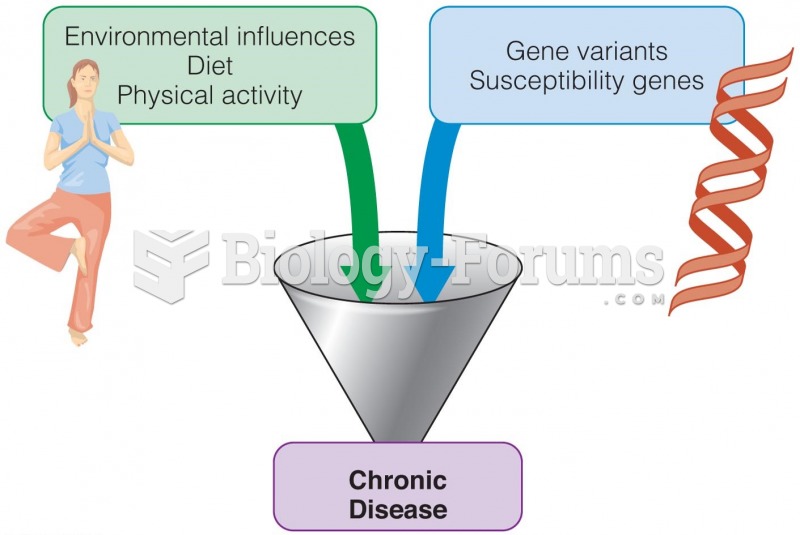|
|
|
Human kidneys will clean about 1 million gallons of blood in an average lifetime.
To maintain good kidney function, you should drink at least 3 quarts of water daily. Water dilutes urine and helps prevent concentrations of salts and minerals that can lead to kidney stone formation. Chronic dehydration is a major contributor to the development of kidney stones.
Adults are resistant to the bacterium that causes Botulism. These bacteria thrive in honey – therefore, honey should never be given to infants since their immune systems are not yet resistant.
Pubic lice (crabs) are usually spread through sexual contact. You cannot catch them by using a public toilet.
In the United States, there is a birth every 8 seconds, according to the U.S. Census Bureau's Population Clock.







